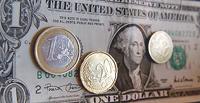Sweden Thrives on Exports One Year After Voters Reject the Euro
Published:
16 September 2004 y., Thursday
A year after Swedish Prime Minister Goeran Persson told voters his country needed the euro to compete in world markets, the Swedish economy has done a good job of proving him wrong.
The National Institute of Economic Research in Stockholm last month raised its economic growth forecast to 3.5 percent this year and 3 percent in 2005. A global expansion has boosted demand for Swedish exports while worker productivity has increased faster than in the 12 countries sharing the euro, which 56 percent of Swedish voters rejected on Sept. 14, 2003.
Swedish and international companies are betting on Sweden. Last month, for example, Atlet AB said it would close its forklift plant in Oberhausen, Germany, and move about 30 jobs to its factory in Moelnlycke, Sweden. Second-quarter foreign direct investment in Sweden jumped to a net 19.9 billion kronor ($2.7 billion), after a year-earlier outflow of 31.4 billion kronor.
The European Central Bank expects the economy of the euro region to expand about 1.9 percent this year and 2.3 percent in 2005. By one study, Sweden ranks second in the world in productivity.
Sweden, a nation of 9 million people that joined the European Union in 1994, accounts for 2 percent of the bloc's population and 2.7 percent of economic production. Its economy has grown faster than that of the euro region for eight of the past 10 years.
Šaltinis:
Bloomberg
Copying, publishing, announcing any information from the News.lt portal without written permission of News.lt editorial office is prohibited.
The most popular articles
 The European Commission launched "The ocean of tomorrow " call for research proposals. Oceans cover about 70% of the Earth's surface, but human activity is increasing environmental pressure on them.
more »
The European Commission launched "The ocean of tomorrow " call for research proposals. Oceans cover about 70% of the Earth's surface, but human activity is increasing environmental pressure on them.
more »
 The EBRD is stepping up its support to the real economy in Georgia with new funds for on-lending to local businesses.
more »
The EBRD is stepping up its support to the real economy in Georgia with new funds for on-lending to local businesses.
more »
 Lithuania’s Ambassador to Germany and Special Representative for EU External Relations in the German Foreign Office discussed the situation regarding the decision of private credit insurance company in Germany Euler Hermes to apply the rating of a maximum risk country for Lithuania.
more »
Lithuania’s Ambassador to Germany and Special Representative for EU External Relations in the German Foreign Office discussed the situation regarding the decision of private credit insurance company in Germany Euler Hermes to apply the rating of a maximum risk country for Lithuania.
more »
 Peter Reiniger Business Group Director for Central Europe and the Western Balkans from the European Bank for Reconstruction and Development visited Latvia to sign subordinated loan agreement with Parex banka.
more »
Peter Reiniger Business Group Director for Central Europe and the Western Balkans from the European Bank for Reconstruction and Development visited Latvia to sign subordinated loan agreement with Parex banka.
more »
 The European Commission has approved 16 programmes in 12 Member States to provide information on and to promote agricultural products in the European Union.
more »
The European Commission has approved 16 programmes in 12 Member States to provide information on and to promote agricultural products in the European Union.
more »
 New measures to help farmers through recession as milk prices tumble.
more »
New measures to help farmers through recession as milk prices tumble.
more »
 Federal Reserve Chairman Ben Bernanke said the outlook for the long-suffering U.S. economy appears to be improving.
more »
Federal Reserve Chairman Ben Bernanke said the outlook for the long-suffering U.S. economy appears to be improving.
more »
 The Swiss Government and the EBRD are providing €11.8 million to improve the supply of water to some 1 million people living in Bishkek, the capital of the Kyrgyz Republic.
more »
The Swiss Government and the EBRD are providing €11.8 million to improve the supply of water to some 1 million people living in Bishkek, the capital of the Kyrgyz Republic.
more »
 The Neighbourhood Investment Facility (NIF), a key instrument of the intensified European Neighbourhood Policy (ENP), will benefit in 2009 from a €70 million contribution by the European Commission.
more »
The Neighbourhood Investment Facility (NIF), a key instrument of the intensified European Neighbourhood Policy (ENP), will benefit in 2009 from a €70 million contribution by the European Commission.
more »
 In response to the impact of the global crisis on the Romanian construction sector, the EBRD is supporting Lafarge Ciment (Romania) S.A. with a €20 million loan in Romanian lei to finance the company’s operations and to support its working capital requirements.
more »
In response to the impact of the global crisis on the Romanian construction sector, the EBRD is supporting Lafarge Ciment (Romania) S.A. with a €20 million loan in Romanian lei to finance the company’s operations and to support its working capital requirements.
more »